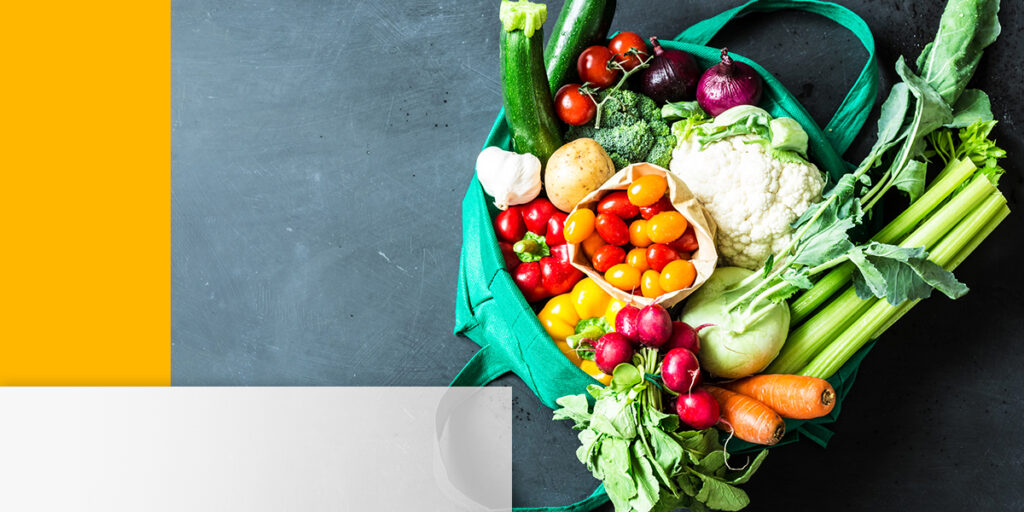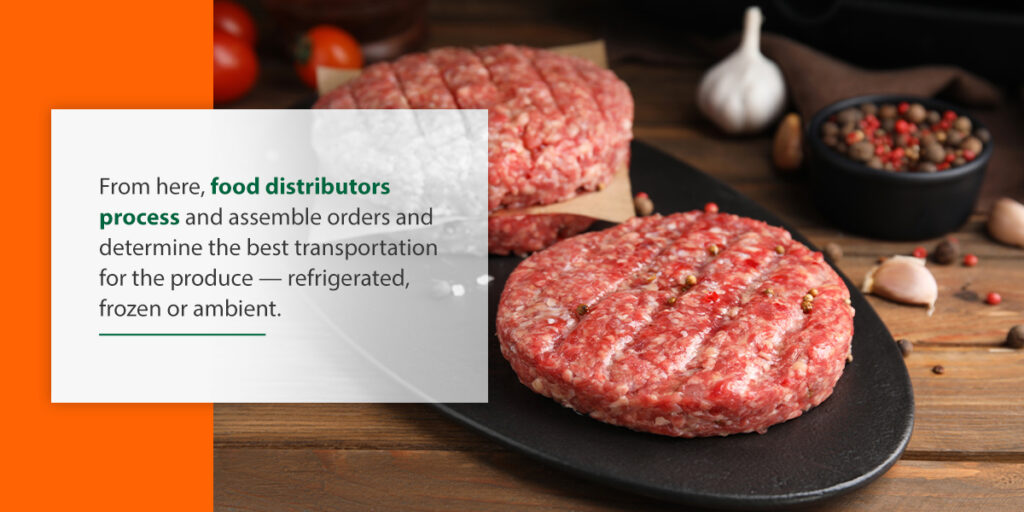What Is a Food Distributor?
Food is something many people take for granted. They go into a shop or a restaurant and buy what they need, but behind the scenes, there’s a lot of hard work and communication going on to get goods from the manufacturer to the consumer’s plate. Food is one of the United States consumer’s top priorities, accounting for 12.4% of household spending, and food-related industries contribute a whopping $1.264 trillion to the U.S. gross domestic product (GDP).
Food distributors play an integral role in this process — they bridge the gap between the supplier and the consumer, providing food and other food-related supplies to customer-facing businesses such as restaurants and supermarkets and directly to the public.
So, What Is a Food Distributor?
Imagine you’re a farmer with a lovely apple crop. You’ve invested time and money in your orchard and now have a quality product to sell. You need to figure out how to sell it. So, where do you go from here?
Now, imagine you’re a retailer with a store. You’re a food operator looking for delicious, high-quality apples to sell to your customers, but you need help finding the best product. Neither the farmer nor the retailer knows where to look to achieve their goals. That’s where the food distributor comes in — they are the middlemen that link the producers of the food and accessories with the sellers.
The general population needs food distributors for several reasons, including providing food, creating jobs and supplying businesses. As you can see, food distributors are an essential part of the food distribution flow.
What Does a Food Distributor Do?
Food distributors are more than just responsible for collecting food products from the source and dropping them off at retailers or restaurants.
Although they are the intermediary between the two, food distributors buy products in bulk from the source, in amounts too large to be usable by any one food operator. Once they have the food in hand, they warehouse their products and break them down into usable amounts. Then, they transport the product to the various food operators for sale to the general public.
Food distributors supply two leading providers in the industry — those that provide food for home consumption, such as grocery stores, and those that offer away-from-home consumption, like restaurants, hospitals and schools. They purchase, package, store and sell them to customers in units suitable for their individual uses.
How Does Food Distribution Work?
The food distribution flow comprises several steps.
First, the food distributor receives the food and accessories, which can be pre-packed or non-prepacked. They then unpack the food if necessary and determine what type of storage they need to keep the food fresh for retailers and consumers — meat would be packaged in a refrigerator or freezer, for example.
From here, food distributors process and assemble orders and determine the best transportation for the produce — refrigerated, frozen or ambient. They ensure the product makes it to their customers in the best possible condition.
Many food distributors use large warehouses for temporary storage while they assemble orders. Some provide food service operators with the option to collect their products.
Food Distributors vs. Wholesalers
Food distributors, wholesalers and retailers are the most common steps in the supply chain. Food distributors help brands get their names on the shelves and offer logistical and storage services. They hold large quantities of stock and transport goods to customers, sometimes across considerable distances. We already know the difference between food distributors vs. suppliers — suppliers provide the products directly from the source.
The most apparent difference is that food distributors sell to wholesalers. Wholesalers can buy their products in bulk, which means they can secure a lower purchase price and then sell the goods at a profit. Some other differences between food distributors and wholesalers include the following:
- Contracts: Generally, food distributors have agreements with manufacturers to sell their goods, but they can’t always use the brand’s name. Wholesalers have no contracts with the manufacturer to sell competing brands together.
- Locations: Food wholesalers work in a smaller area than distributors and deal only with retailers. Food distributors cover larger areas and deal with both retailers and direct customers.
- Marketing: Food distributors take an active role in marketing and selling the manufacturer’s products. Food wholesalers, on the other hand, have no marketing obligations. They purchase outright and supply retailers to make a profit.
What Are the Benefits of Working With a Food Distributor?
Working with a distributor has many benefits. Let’s have a look at some of the key reasons why working with a food distributor could be advantageous for your business:
1. Enhanced Marketing
Food distributors are excellent at marketing and selling their products to food service operators, which is perfect for the manufacturer. Distributors can give out marketing materials and deal with food service operators on their behalf. Manufacturers need only think about having a working relationship with the distributor instead of trying to manage multiple relationships with food service operators.
Many restaurants and retailers choose to buy from distributors as it’s convenient. They also develop these relationships with trustworthy distributors for the best customer experience. Working with a food distributor gives manufacturers opportunities to sell their products without having to focus on marketing themselves.
2. Increased Reach
People are more likely to buy products available on the shelves. Working with a distributor ensures your products will end up on the shelves and positioned in the kitchens of multiple food service operators. Hence, they are easy to see and at the forefront of consumers’ minds.
3. Elevated Promotion
Most food distributors employ professional sales representatives who meet with retailers and introduce them to current and new food products. You can work with a food distributor and devise a strategy to market your products, including tasters and promotions.
4. Enhanced Productivity
Whether a food service operator or a supplier, working with a food distributor helps you focus on what you do best. If you’re creating products or selling them in your store or restaurant, having a professional distributor by your side can get your products out there to the right people, at the right price.
Become a Feeser’s Customer for the Best Food Service Solutions
Feeser’s Food Distributors has come a long way since our humble beginnings over a hundred years ago. Still, despite becoming one of the Mid-Atlantic’s top broad-line and full-line food distributors, we’ve always focused on value and trusting relationships. Here at Feeser’s, our customers are our friends.
Whether a large or small business, you can expect the same level of excellence and reliability. We have over 8,000 products for you to choose from, as well as nationally branded grocery items and fresh food programs. Our journey from a produce stand to now has given us vast experience and a thorough understanding of food trends, which is just one of many reasons to partner with us.
Become a customer today to source our fresh, locally-produced products and let’s start a fruitful partnership, together.



